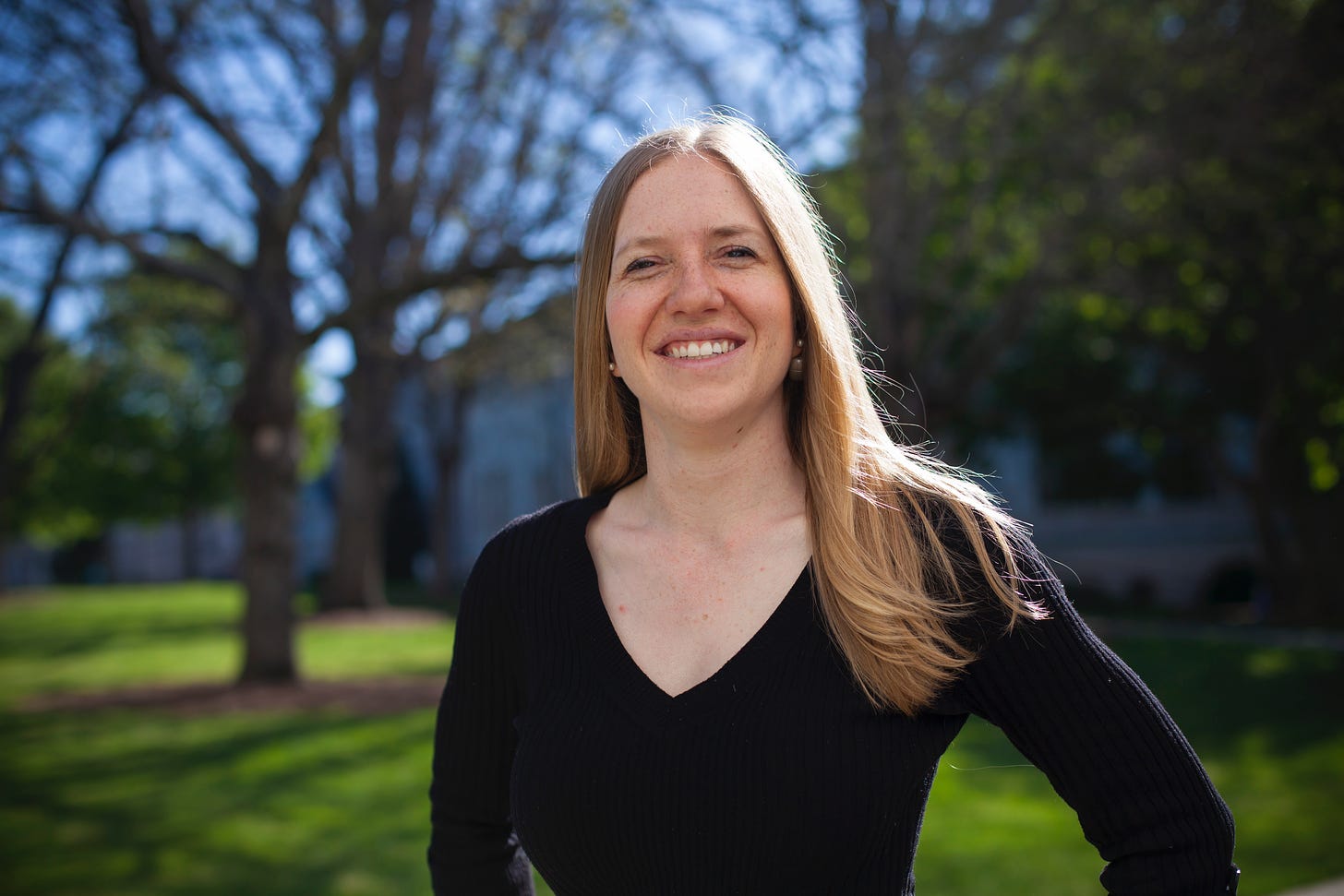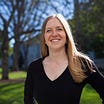Hi everyone,
Hasn’t this been a journey of a year together on Substack? I give God thanks and praise for your accompaniment in this song. Thank you for reading, for engaging, for sharing, for giving me space to work through ideas I have about music and faith. Expressive culture doesn’t just happen in the performance of it, but also in the processing of it. So thank you for bearing witness to my processing, and for letting me engage yours. A blessed Hanukkah, Christmas, Kwanzaa, and New Year to you all.
To close out this year on Julian’s Note, I am delighted to share a guest piece written by my good friend Dr. Rachel Kolb (Emory University, PhD). Rachel Kolb is a writer who seeks to bring deaf and hearing communities together through deeper reflections on sound, silence, language, and mutual inclusion. She currently lives in the Boston area and is at work on a memoir of deafness and voice. You may learn more about her here.
Rachel and I have known each other and have talked about deafness, music, and Christian faith for years. She has graciously taught me about music being more-than-sound, and that has impacted my work as a musician and as a theologian. I am thankful she shares her wisdom with us today.
until 2024,
Julian
—
“He who has ears, let him hear.”
The pastor in church usually says these words so solemnly. But, whenever I’m sitting in the pews watching the service through an American Sign Language interpreter, both our mouths often twitch. Yes, my interpreter and I smirk together in church, just for a second, because we both know I’m deaf. This means we also both know how limited ears and hearing can be, how rote and conventional, even though they have been made to carry so much cultural and theological weight.
It is possible to communicate several different variations of this verse in ASL: to sign listen-with-the-eyes, listen-with-the-body, even listen-with-the-heart. These variations are usually what my ASL interpreter signs during church, where the spiritual metaphor of hearing arises so often it’s funny. She adjusts the meaning in ASL to indicate the fluidity and expansiveness of true listening. These meanings feel strikingly relevant to Jesus’s words to the deaf man in Mark 7: Ephphatha, be opened!
Whenever I read the passage from Mark 7, I think about the Evangelist’s unique emphasis on this utterance and its translation, about how openness is something that goes far beyond hearing alone, beyond the auditory or verbal forms of communication we associate with it. I also think about this word’s similarity to ASL. Open-the-heart: this, too, is a common phrase one can sign to express or to hope for faith. I have signed it many times.
Accessibility in the church is a topic far too large and too complex to address in today’s newsletter, or in any single essay, but suffice it to say: I wish I (and more of my deaf and disabled friends) felt freer to attend church more often, to worship alongside our peers within everything our bodies can give us. I wish it were easier to find faith communities more open to the wildly varied presence of disability. Listening-with-the-eyes and listening-with-the-body can bring us into rich and dazzling territory, and they can transport us into new ways of engaging with the Spirit and with each other.
Listening-with-the-eyes and listening-with-the-body are also among the ways I encounter music, in church and anywhere else. With my body’s openness to other forms of sensory input, I experience music not solely as an auditory phenomenon. When I raise my hands to sign to a worship song in church, or when I clap along to a lively tune within an audience of other warm moving bodies, I do hear the music, at least a little bit — through my hearing aid and my cochlear implant, the devices that give me access to some semblance of sound. But sound isn’t what’s most important to me. Not even with all the cultural and theological weight it (once again) tends to carry.
I’m also attuned to what I see onstage. I take in the faces of the worship choir. I make eye contact with the people around me. I read the lyrics if I have them. I watch the interpreter. I think about the rich and beautiful interplay between ASL and English, the rich and beautiful interplay between the musicians onstage, who use their bodies to interact with each other, with their instruments, with the people who have come to watch. (Ahem, I mean listen.)
And I’m attuned to what I feel, too. Rhythm, movement, the beat of the percussion, the beat in my body, the beat and the breath I sense in all these other bodies here together: this is what music can mean for me, when I engage with it. Music feels profoundly like movement — tied to the energy that flows between people, through the air, deep in my chest. I think this is why many people find it simultaneously transporting and restful. It can remind us of the movement of the Spirit through and among us.
There are parts of music that I will never hear or understand. These parts will never give me rest, and this is okay, because I have been made to be attuned to different things. I find rhythm and movement and transport in other places, too. This is what my deaf experience has taught me: to be open to the various forms of listening, of attention and restfulness and relationship, that can lead us closer to God and to each other. And this is also what I wish for the readers of today’s newsletter: the openness to the Spirit’s wildly varied movements, within and among us, that can lead us into these dynamic notes of rest.
Call this music, or not. He who has ears, let him hear! (Or not. Believe me, using your eyes is fine too.)
—
What’s Next
Dec 16 Isaiah Collier & the Chosen Few at Dorian’s (Chicago)
Dec 30 Recording with Julian Davis’ Reid’s Circle of Trust (solicit your prayers)
Dec 31 Notes of Rest at Evanston Vineyard (Chicago)
Jan 5 Marques Carroll Quintet at Andy’s Jazz Club (Chicago)
Jan 6 Concert with Tramaine Parker at St. Benedict the African (Chicago)
Jan 13-16 New York Winter Jazz Fest with Isaiah Collier & the Chosen Few
Jan 18 Notes of Rest at Colgate Rochester Crozer Divinity School
Feb 1 Julian Davis Reid’s Circle of Trust at Hungry Brain (Chicago)
Feb 1 Notes of Rest at Olivet Nazarene University
Feb 11 Notes of Rest at Barrington UMC






